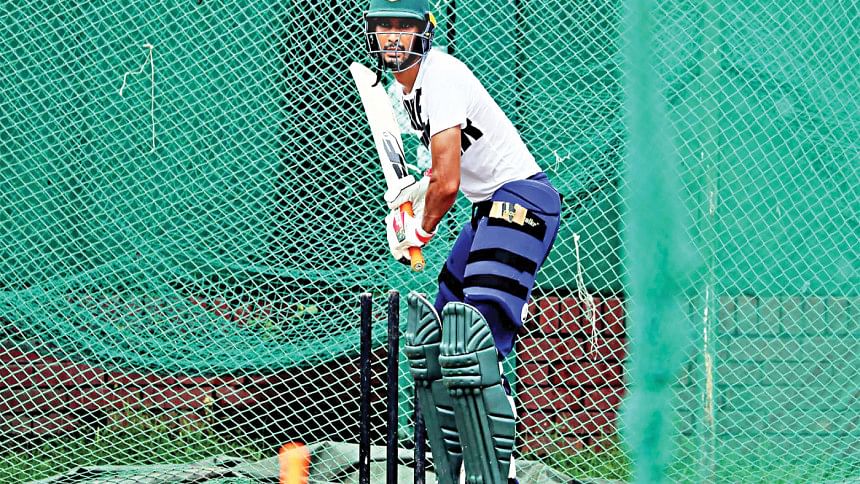Covid-19 exposing Hassan’s failures

On Saturday, after a long absence due to the Covid-19 pandemic,Bangladesh Cricket Board (BCB) President Nazmul Hassan held court in a press conference. And over the course of the press conference, he proved once again that beyond obligatory soundbites about regional cricket associations come election time, problems at grassroots levels do not much capture his attention.
Just like the pandemic has done in all aspects of life around the world, it has made crystal clear the shortcomings of Hassan and his board – the richest sporting body in the country and one of the most affluent cricket boards in the world.
At a time when the rest of the country has resumed normal proceedings amid the pandemic because livelihoods are inseparable from lives, Hassan sounded the death knell for the currently suspended season of the Dhaka Premier League – the major source of income for most of the country's cricketers.
"The league can only start under either of two conditions," Hassan had said. "Firstly, if the Covid-19 situation in Bangladesh improves, or if the vaccine arrives. Otherwise, I don't see any logic in starting the league. I don't see any point taking a risk by trying to be brave."
Much of the press conference was taken up by Hassan's plans for the Bangladesh national team's upcoming rescheduled tour of Sri Lanka. He seemed to have considered deeply the national team's safety and the logistics of going to Sri Lanka as he talked about renting out entire floors of five-star hotels. That is admirable and also expected. The failing on Saturday – and countless times in the past –was how he summarily dismissed the domestic cricketers' plight.
"My only message [to domestic cricketers] would be to look at the rest of the world where millions have lost their job and have no income. Let us pray to Allah to help us recover from this pandemic. Of course, the BCB will try to help them."
The head of the governing body of cricket and cricketers in the country said that they will "try to help them". The thrust of his "only message" to domestic cricketers who do not have the cushy contracts of the national stars is others are suffering, so you must too. This neglect of domestic cricketers is not new. During the players' strike last August when the country's cricketers rose as one to demand greater respect and better pay and facilities, Hassan's anger was focused on the national stars – the domestic cricketers were not even an afterthought.
Looking around the world, one can see England, which according to Johns Hopkins has the second-highest case-death ratio after Yemen. Yet domestic cricket is going on in that country, not to mention the ongoing England-Pakistan Test series. They have managed to do that with effective distancing and bio-secure measures in place, presumably because there was a strong will to get cricket back on the field.
Why are such measures not possible in Bangladesh? Answering that question may expose more of the failures of Hassan's regime. He talked about regional cricket associations when he became president, but nothing much has materialised.
If cricket facilities in regions not named Dhaka or Chattogram had become stronger, it would have been possible to shift cricket away from the infection hotspot that is Dhaka and focus activities on safer divisions like, say, Rajshahi and Mymensingh. But those measures, over eight years of Hassan's presidency, has paled in comparison to the much more visible activities surrounding the national team.
Even without a decentralised cricketing structure, the BCB has enough funds -- as their officials are often fond of saying -- to be able to take special measures in a time of crisis.
If the national team is the be all and end all in Hassan's eyes, then he would also do well to consider that without a robust domestic set-up the talent well will dry up. The visible cost of not doing everything possible to get domestic cricket up and running is the dwindling livelihood of the journeyman domestic player, but what of the hidden costs?
Is it a stretch to say that many youngsters, in the absence of a viable income source from cricket, will now choose to stay away from the game?
That, however, does not seem to be Hassan's problem because those youngsters and the journeyman domestic cricketer does not have the Tiger monogram on their jerseys. With the pandemic throwing BCB's incompetence into stark relief, the fear now is that it may just be the tip of the iceberg.

 For all latest news, follow The Daily Star's Google News channel.
For all latest news, follow The Daily Star's Google News channel. 



Comments